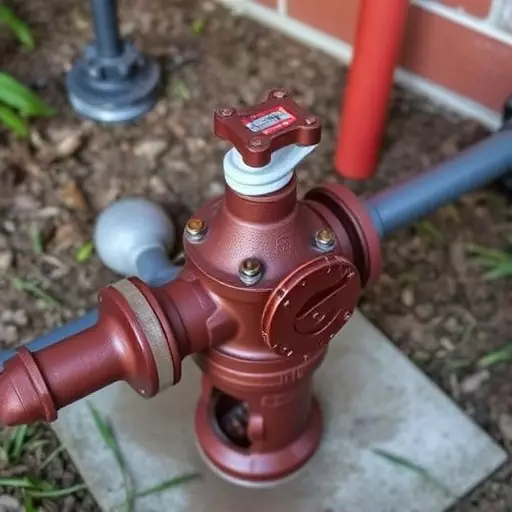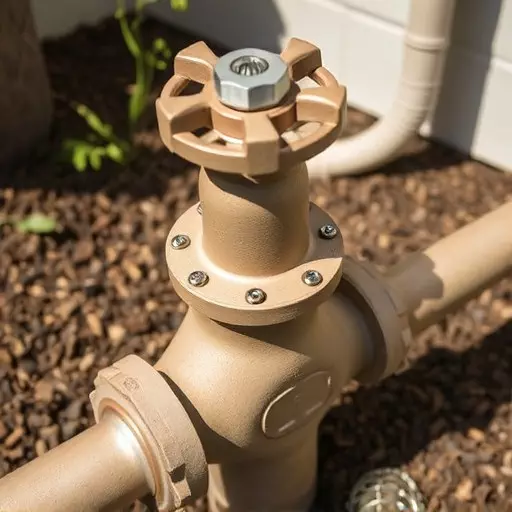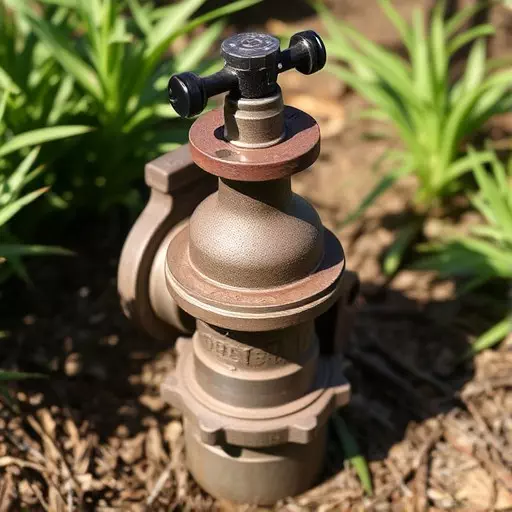Annual backflow preventer testing in Jacksonville is mandatory for commercial and residential properties, ensuring safe water systems. Regular inspections by professionals guard against cross-contamination, comply with regulations, and maintain the purity of water in homes and businesses. This process involves evaluating backflow preventers, identifying issues, and addressing them through repairs or replacements, ultimately protecting community health and preventing costly damage from contaminated water.
“Ensure your plumbing system’s safety and comply with Jacksonville’s regulations by understanding the vital role of annual backflow preventer testing. This comprehensive guide delves into the essential aspects of backflow prevention, offering insights for both commercial and residential properties. From comprehending backflow preventers’ critical function in plumbing systems to interpreting test results and benefiting from regular maintenance, this article equips you with knowledge. Discover why professional consultation for backflow testing is a game-changer, especially in Jacksonville, and learn practical tips for a seamless inspection process.”
- Understanding Backflow Preventers: Their Role and Importance in Plumbing Systems
- Why Annual Testing is Essential for Backflow Preventer Safety
- The Difference Between Commercial and Residential Backflow Testing Requirements
- Jacksonville's Regulations: What You Need to Know for Backflow Prevention
- Preparing for a Professional Backflow Inspection: Tips for Smooth Process
- Interpreting Test Results: Understanding the Findings for Effective Action Plan
- Benefits of Regular Backflow Preventer Maintenance and its Long-Term Impact
Understanding Backflow Preventers: Their Role and Importance in Plumbing Systems

Backflow preventers play a vital role in plumbing systems, especially in preventing hazardous backflow from occurring. These devices are designed to stop contaminated water from flowing back into clean water sources, ensuring the safety and purity of drinking water. In both commercial and residential settings, backflow preventers are critical components of any plumbing infrastructure.
Annual backflow preventer testing is essential for maintaining these crucial systems. Jacksonville residents and businesses should prioritize regular inspections, as it helps identify potential issues early on. A professional consultation for backflow testing ensures that all devices are functioning optimally, thereby protecting against cross-contamination and ensuring compliance with local regulations. This proactive approach to maintenance safeguards the quality of water in homes and commercial premises alike.
Why Annual Testing is Essential for Backflow Preventer Safety

Backflow preventers are critical safety mechanisms designed to protect water supplies from contamination. Annual testing is essential for several reasons. First, these devices can degrade over time due to wear and tear, environmental factors, or improper installation. Regular inspections ensure that they maintain their integrity and function as intended. Second, annual backflow preventer testing Jacksonville and commercial/residential backflow preventer inspections help identify potential issues early on, preventing serious problems like water contamination that could affect entire communities.
Compliance with local regulations is another vital aspect. Many areas, including Florida, mandate regular backflow testing to ensure the safety of public water systems. Failure to comply can result in penalties and service disruptions. For homes and businesses alike, a commercial or residential backflow preventer inspection not only safeguards against legal repercussions but also offers peace of mind, knowing that your water supply is protected at all times.
The Difference Between Commercial and Residential Backflow Testing Requirements

Jacksonville's Regulations: What You Need to Know for Backflow Prevention

Preparing for a Professional Backflow Inspection: Tips for Smooth Process

Interpreting Test Results: Understanding the Findings for Effective Action Plan

Interpreting test results is a crucial step in developing an effective action plan for your backflow prevention system, whether it’s for commercial or residential properties in Jacksonville. Professional consultation plays a vital role here as experts can help decode complex findings and offer tailored solutions. During annual backflow preventer testing, various parameters are assessed, including water pressure, flow rates, and the presence of contaminants.
By understanding these results, you can make informed decisions about necessary repairs or replacements. For instance, if tests reveal excessive pressure, it might indicate a need for system adjustments or upgrades. Conversely, high levels of contamination could signal issues with local plumbing or require more frequent testing. A comprehensive report from a qualified inspector will guide you through these findings, ensuring your backflow prevention mechanisms function optimally and comply with local regulations.
Benefits of Regular Backflow Preventer Maintenance and its Long-Term Impact

Regular maintenance and testing of backflow preventers are essential practices for any property owner or manager, whether commercial or residential. Annual backflow preventer testing Jacksonville professionals recommend is crucial to ensure these devices function optimally and safely. Backflow preventers are critical components in water supply systems, designed to stop contaminated water from flowing back into the main supply, thus protecting the integrity of the drinking water.
By conducting routine inspections and tests, potential issues can be identified early on. This proactive approach saves costs in the long run by preventing severe damage caused by backflow contamination. It also ensures compliance with local regulations, which often mandate regular commercial backflow preventer inspection for all properties. Regular testing allows for quick replacement or repair of faulty parts, ensuring the backflow preventer remains effective and efficient, thereby safeguarding against potential health hazards and financial losses associated with water contamination.


